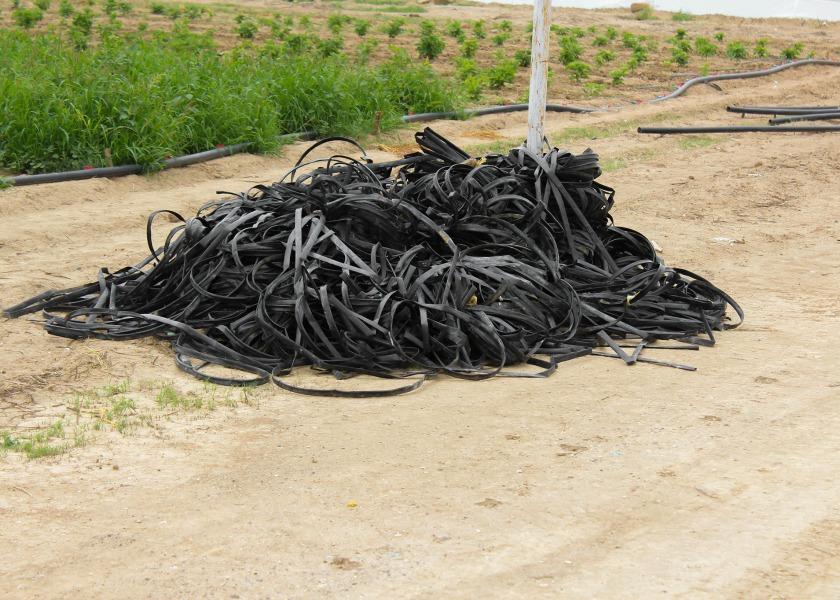How growers, distributors are tackling organic agriculture’s plastic problem

From the ubiquitous, translucent clamshell displaying ripe raspberries to the hard plastic pallets used for transport, plastics are everywhere in the produce supply chain, whether we like it or not. Organic produce is no exception.
While organic production systems seek to foster biodiversity, support a thriving ecosystem and build soil health, organic farming often relies on plastic to solve challenges without synthetic inputs. From seed to shelf, plastic is used in the organic supply chain to protect plants, improve yields, reduce water use and mitigate pest pressure without using pesticides, not to mention transport harvested crops to the end consumer.
While the reliance on synthetic plastics pushes against the organic ethos, plastic remains an essential tool in the organic farmer’s toolkit to enable productive and profitable growing systems.
To address the future of organic and its reliance on plastics, the Organic Trade Association recently partnered with education nonprofit The Organic Center to host Organic Confluences Day on May 9-10. The conference took place in tandem with the OTA’s Organic Policy Week in Washington, D.C.
Throughout the two-day conference, the association hosted talks addressing how rampant plastic use affects climate change, waste, the environment and human health. What’s more, organic farmers, researchers and industry leaders shared strategies they found effective to reduce plastic across the entire organic supply chain — from seed to shelf.
"Our conference is gathering individuals from every aspect of organic because finding a solution to this critical issue requires input and collaboration across the sector. This isn’t just organic’s problem to solve, but we can be leaders on the path to change,” Amber Sciligo, director of science programs at The Organic Center said in a news release.
The goal of the conference, Sciligo said, was to expand communication and collaboration across the diverse sector, with policymakers and researchers at the table, so that the industry could reimagine plastic use in organic production.
Related news: The Organic Center and Organic Trade Association join to address plastics in supply chain
What creative solutions did researchers, industry experts and organic advocates find worked to reduce and transition production and packaging away from plastics? While over a dozen leaders shared insights, three noteworthy experiments in reducing plastics stood out.
3 ways organic growers and distributors are reducing plastic in the supply chain
1. Swap out plastic covers for fiber alternatives.
The Organically Grown Co. reported that it successfully reduced plastic use in its banana program by 95% by swapping plastic stretch wrap for reusable “banana blankets.”
“Previously, our team tightly wrapped each banana pallet with plastic, which offered a layer of warmth as the bunches ripened. With input from OGC’s Food Safety team, our Sustainability Committee members set up a process to swap plastic wrap for washable thermal blankets. The experiment worked, bringing plastic wrap use down by over 95% in this area of our business,” according to the Organically Grown Co. 2022 Benefit Report.
2. Incorporate peel-and-reseal trays
Taylor Farms reported that it uses a “100% post-consumer recycled tray made from 27%-35% less plastic” than previous packaging for its Earthbound Farm Brand that includes a peel-and-reseal lidding film that maintains a controlled atmosphere for organic greens.
3. Swap out single-use polyethylene mulch for soil-biodegradable plastic.
Today, polyethylene mulch is pervasive in organic agriculture to control weeds, retain moisture and support early harvest and soil temperature modification. Adopting soil-biodegradable plastics for plastic mulches is one step to reducing pollution and microplastic exposure.







